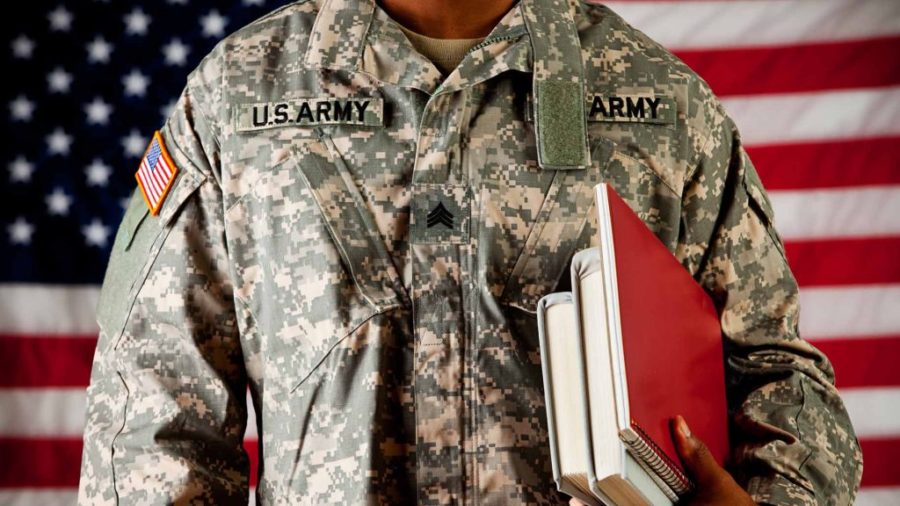Military after high school
May 29, 2018
For many, military service after high school is the best choice. It may not seem like that from the perspective of many Milford residents and students, but in worse economic situations, the promise of food, shelter, and work including other benefits are not something to pass up.
In reality, the importance of military within our society is wildly misrepresented within certain areas. With places like Milford, many students don’t quite grasp the scope of how many students and young adults go into the military.
Going into service after schooling isn’t for everyone mind you; many who believe they can join or may fit for the position can not in reality. According to a 2010 study published by, Democracy In Action close to 25 percent of all young adults fresh out of high school flunk the entrance exam.
Historically, the American military has been viewed as a gateway to higher opportunities, such as furthering one’s worldview, as well as allowing one to gain leadership qualities and other important teamwork skills. For many though, it is not only that, but a way to display their sense of duty and patriotism, for they are duty-bound to serve because of a sense of honor.
This says a lot, not only about those attempting to join, but the difficulty the military faces when deciding on to keep as many as possible or go through the hardships of denying access to that in which they want to serve.
While it is true that those willing have the ability to take the entrance exam once more, they may have been demoralized from the initial failure and their drive demolished.
In fact, the number of active duty service force had dropped close to 700 million members between the years of 1990 and 2015. In 2016 as well, the number of military personnel overseas was at 60-year low, according to Pew Research Center.
Another interesting fact, a large portion of recruits are not going directly after high school, rather waiting a small amount of time in between enlistment and service. In 1992 only about 35 percent of recruits were older, and now the “majority” of recruits are not fresh out of high school high school classes. The RAND corporation (an American nonprofit global policy) did a survey in 2014 at five basic training camps asking around 5,373 recruits questions about their service. Bernard Rostker, a Senior member of RAND said that “The US military has become a family business for many Americans.”
What he means by this is that a large portion of recruits have previous ties to the military. Going as far to say that 38 percent of all recruits had fathers in the military and close to six percent had mothers who served.
This means that, not only is service affected by the area in which you live in, but also by whether or not those close to you have served as well.
Many older recruits when asked about why they waited a small expanse of time before having enlisted list reasons such as work experience, jobs, college and even vocational schools being causes of late joining. This doesn’t apply to everyone though. 38 percent of the 5,700 surveyed, claimed that they just wanted the time off.
Another reason that applied to many of the younger recruits was things such as “no hope” or only “dead end work” within the areas they lived in.
One anonymous recruits was cited saying “being a grunt is better than living where I’m from”. This is saying a lot, seeing as how the number of young recruits has been steadily declining since 1990 with the only trend break being around late 2001 and early 2002. Obviously being because of the terrorist attacks in November of 2001.
This information means a lot, as it shows there is a new era in American history. With less recruits being fresh out of high school and more being older and wiser, as well as being significantly more prepared for the situations coming to pass as soldiers.
Although the average number of recruits has diminished , and the age of enlistments has increased, it allows the soldiers to garner more experience before going into service, making them better members of society afterwards, as well as more respectful and mature soldiers representing the United States of America.
